Relationships between adult kids and parents can be complicated. Yet the majority (59%) of young adults in the U.S. say their relationships with their parents are excellent or very good. Similarly, 77% of parents say the same about their relationships with their adult kids.
But not all parents want to maintain a close relationship with their children once they leave the nest. This 28-year-old woman was hurt by her parents’ lack of enthusiasm and communication when she moved out. Her situation reflected a broader problem in our society: what is a normal amount of worry and attention from parents once you start your own life?
A woman moved out of her parents’ place at 28 and was baffled by their lack of interest in her
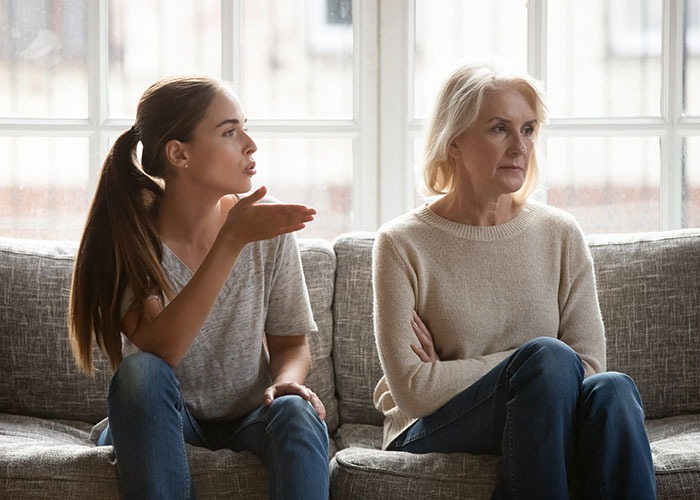
Image credits: namii9 / freepik (not the actual photo)
She wondered whether it was unreasonable of her to expect them to care about what and how she was doing
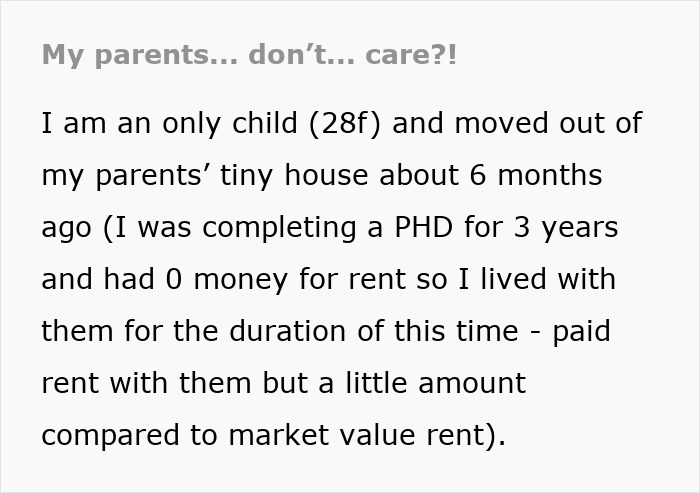
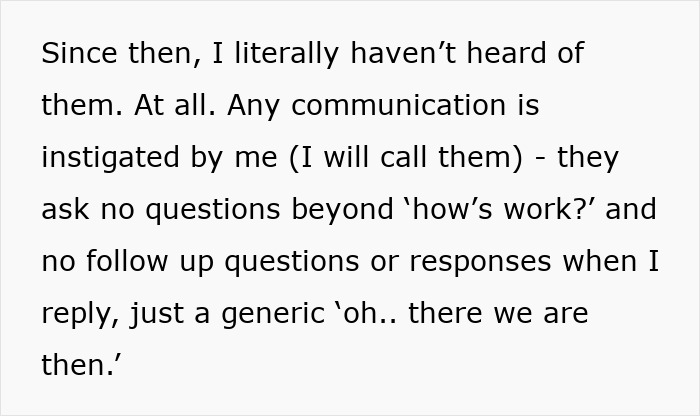
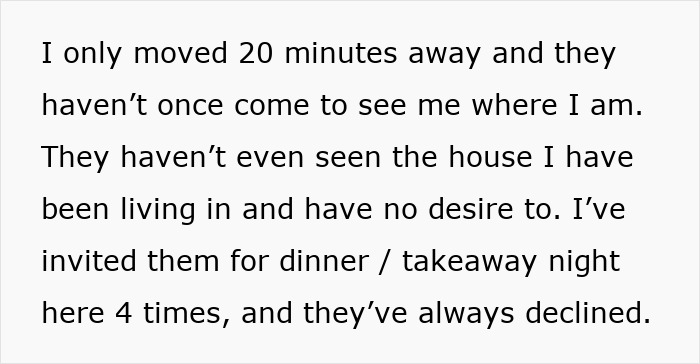

Image credits: SkelDry / freepik (not the actual photo)
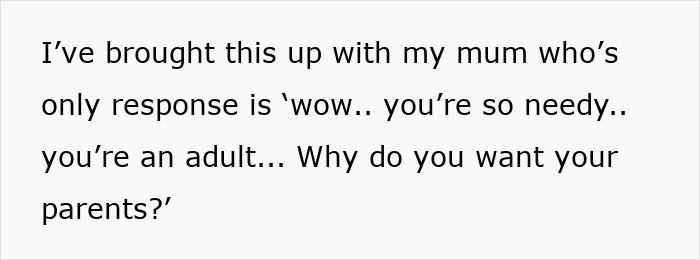
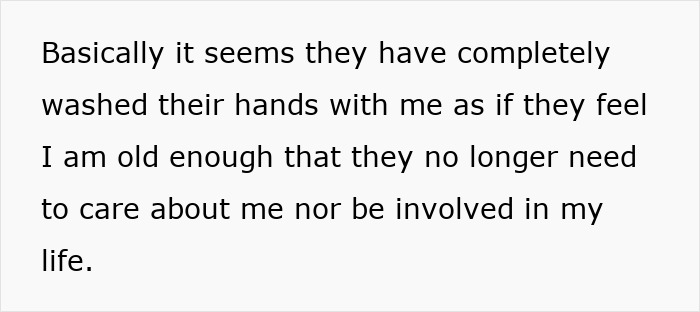


Image credits: EyeEm / freepik (not the actual photo)
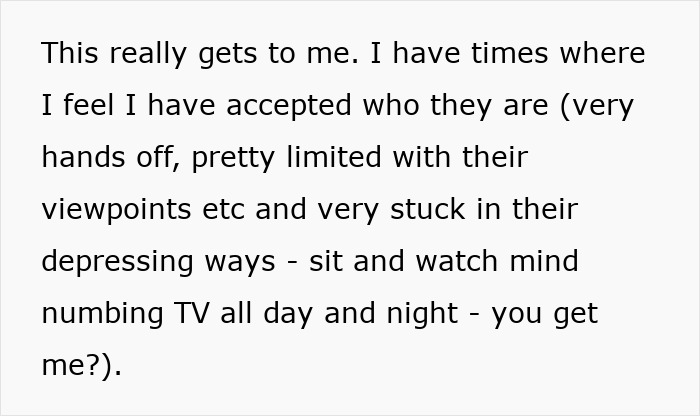
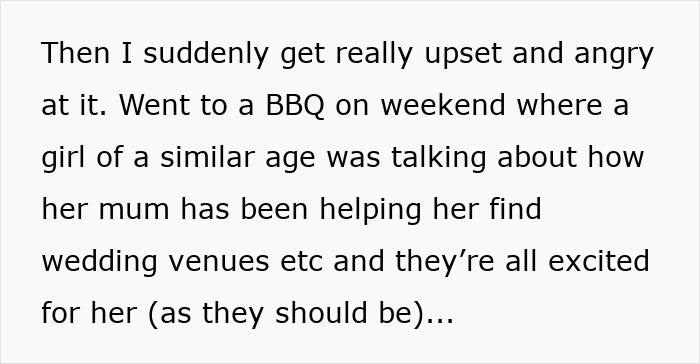
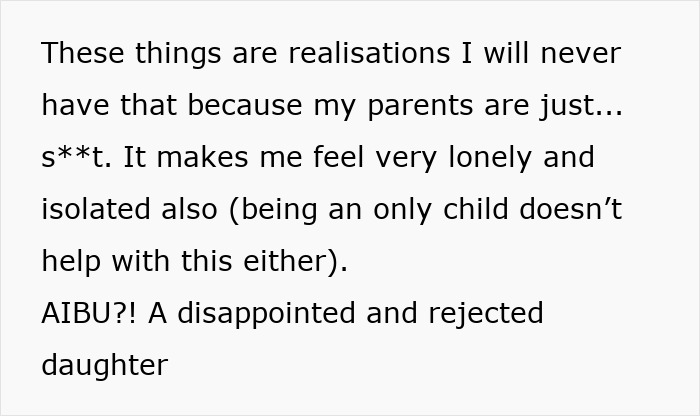
Image credits: itsallabitmuchx

Image credits: Wavebreak Media / freepik (not the actual photo)
The woman clarified that she always craved a closer relationship with her parents
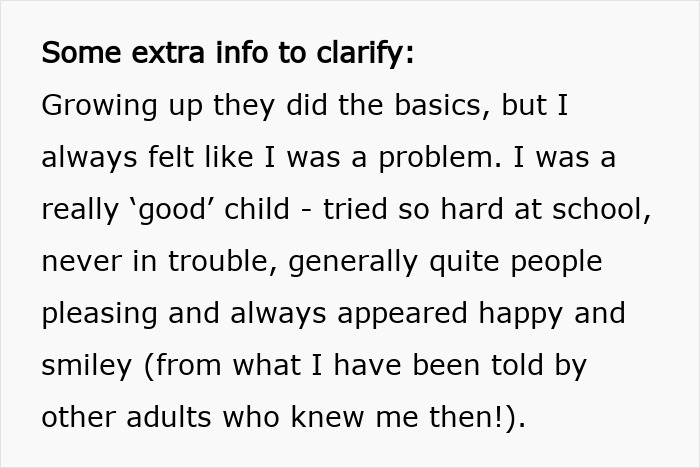
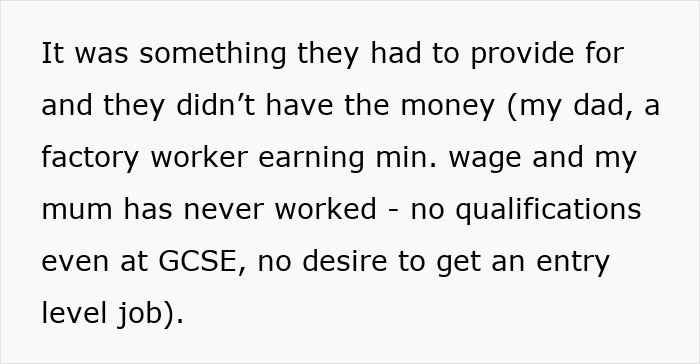
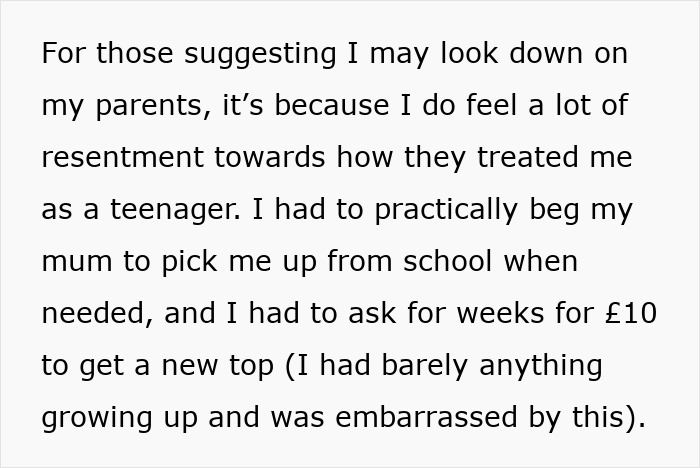
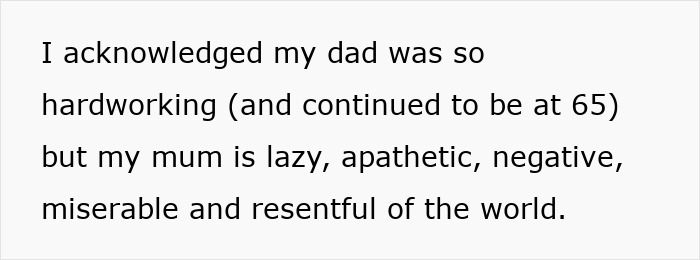

Image credits: wavebreakmedia_micro / freepik (not the actual photo)
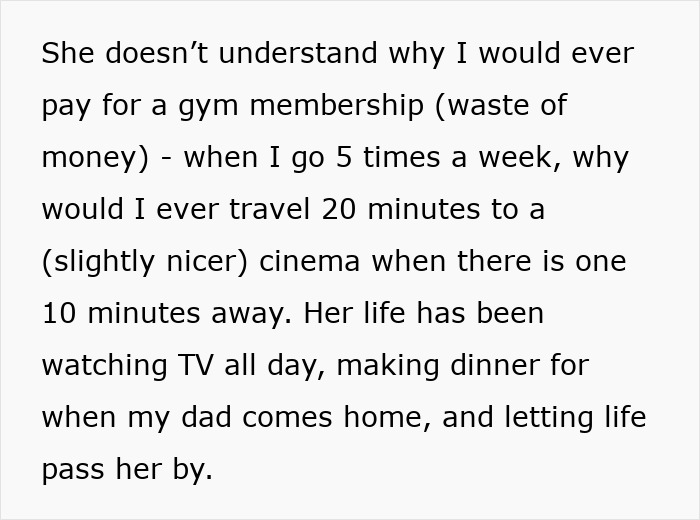

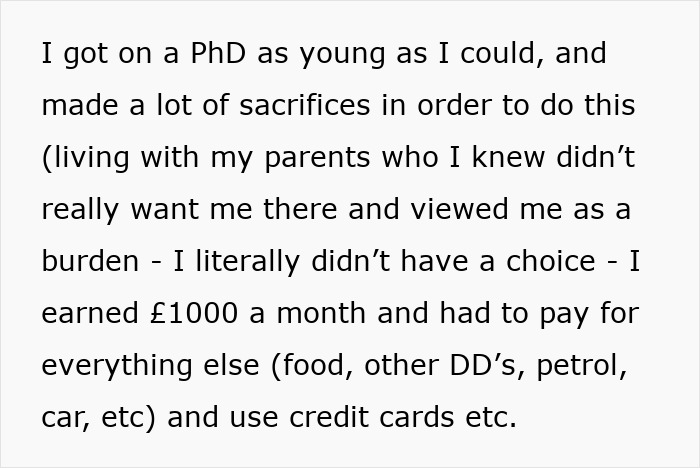
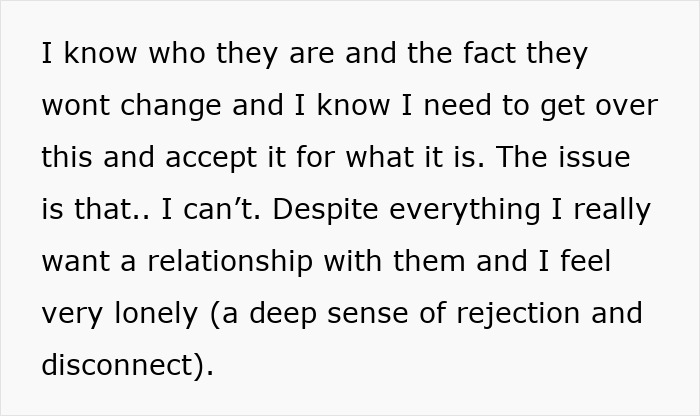
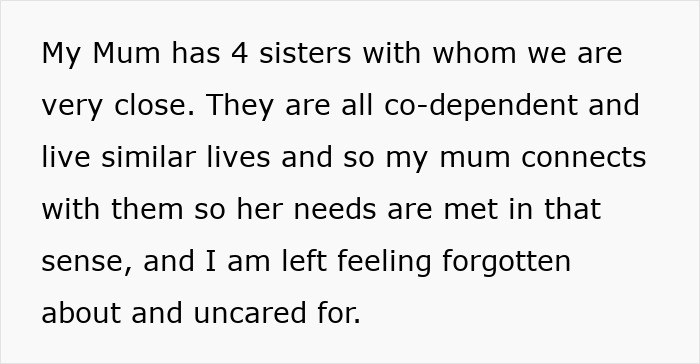

Image credits: user21155762 / freepik (not the actual photo)

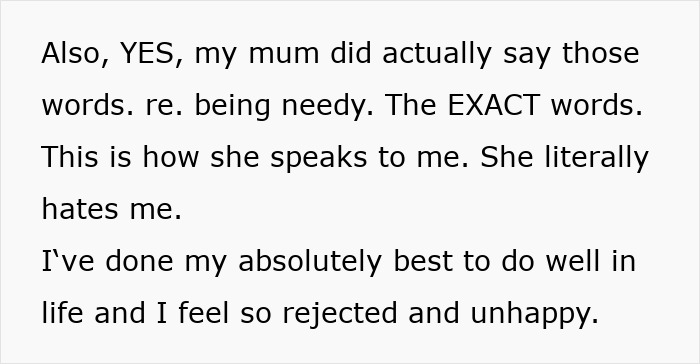
Image credits: itsallabitmuchx
Living with parents saves adults some money, but it is bad for the macroeconomy

Image credits: zinkevych / freepik (not the actual photo)
This generation of adult kids generally maintains a close relationship with their parents. In fact, according to the U.S. Census Bureau, one in three adults aged 18 to 34 currently lives with at least one of their parents in their home.
The numbers spiked during the pandemic, but even in the post-Covid years, the trend remains similar. For many young adults, it’s about not being able to be financially independent. According to a 2024 Bank of America survey, more than half of Gen Z say they don’t make enough to live the life they want.
In the EU, the average age of moving out of your parents’ house is 26.5. In the UK, 43% of young adults live with their parents at age 25. By age 34, the percentage drops significantly to 12% for men and only 5% for women.
Joanne Hsu, a research associate professor at the University of Michigan, explains that adults who grew up during the 2008 recession are wary of financial hardship. Their worries were confirmed when another shock came during the pandemic.
“Part of the reason we see this escalation of young adults not leaving the nest or returning to the nest is this idea that it was harder and harder for them to weather shocks,” she told CNBC.
Living with parents can help adults save money. But it’s not good for the economy, Hsu says. “One of the big boosts to consumer spending is when people form households,” she notes. If young adults were to pay for housing, food, and transportation themselves, that would seriously boost the economy.
Avoidant or dismissive parents usually find it easier to move on after their children move out

Image credits: Guzov Ruslan / freepik (not the actual photo)
The woman wrote in a later update how her parents, especially her mother, were always distant, making her feel unwanted. This explains why they do not feel the need to check in on her after she has moved out to live on her own.
Licensed psychologist Hal Shorey, Ph.D., explains that dismissive and avoidant parents find it easy to adjust after their children leave the nest. “Once their children move away, they are more likely than parents with other styles to go about their lives, content to wait until their children reach out to them,” he writes for his blog on Psychology Today.
“If the child reaches out with concerns about social issues or hurt feelings, the parent may have little interest.” And this was exactly the woman’s problem in this story. Her mother dismissed her reaching out and showed very little interest in visiting her or being the first one to reach out.
Living with their parents may be emotionally difficult for some adults

Image credits: freepik (not the actual photo)
Living with parents can also be stressful for some adult children. A 2018 Greek study revealed that some adults may feel stifled, controlled, and exasperated when going back to live with their parents. They found four main sources of tension among parents and children:
Too much care can also result in familial tensions. “While many adult children appreciate support from parents, it can create blurred lines when it comes to the issue of autonomy,” the authors of the study note. So, maybe learning to live without parents can do adults some good?
Some people believed parents should always be there for their kids, even in adulthood: “Doesn’t justify this level of disinterest”
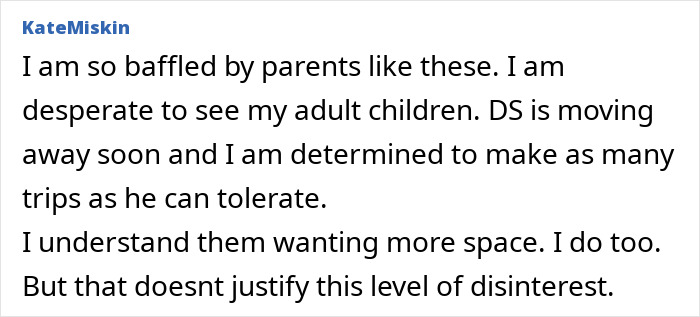
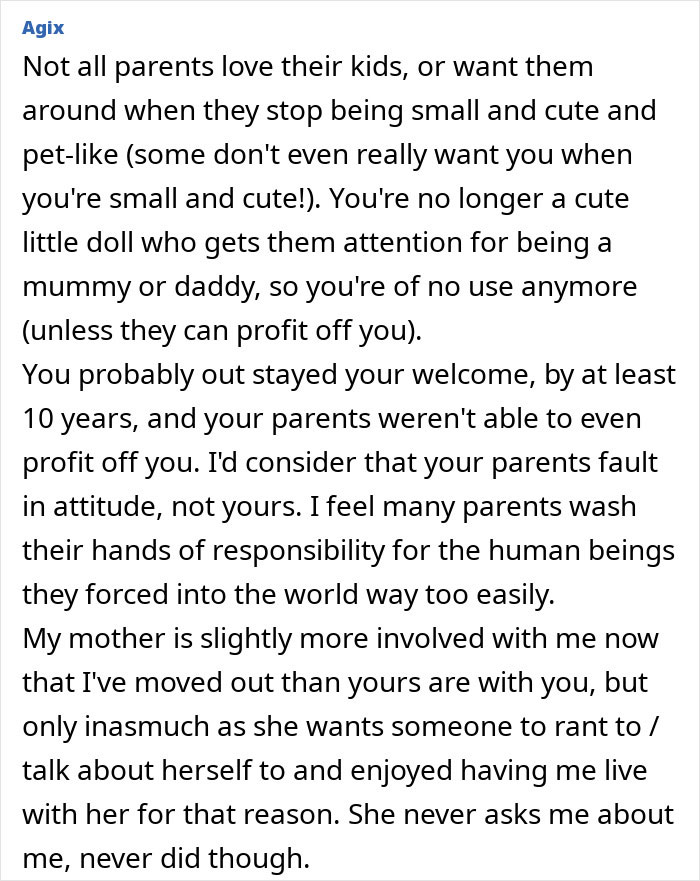
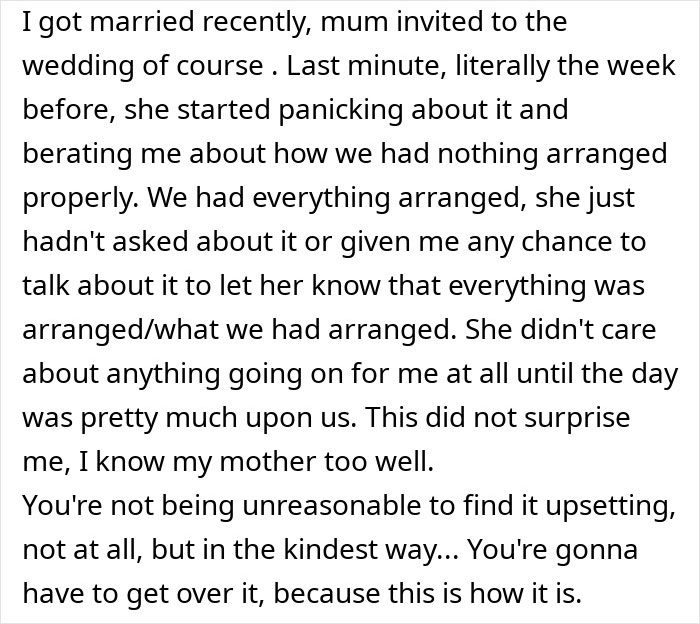
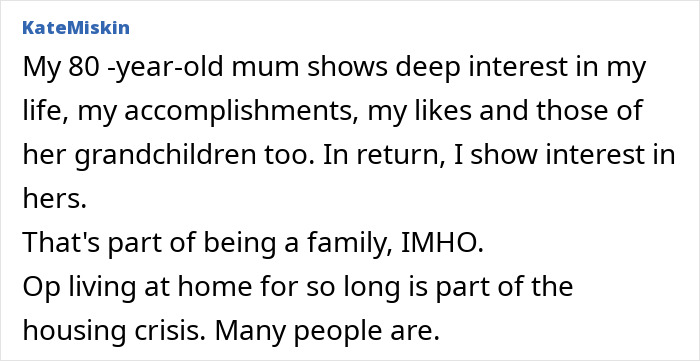

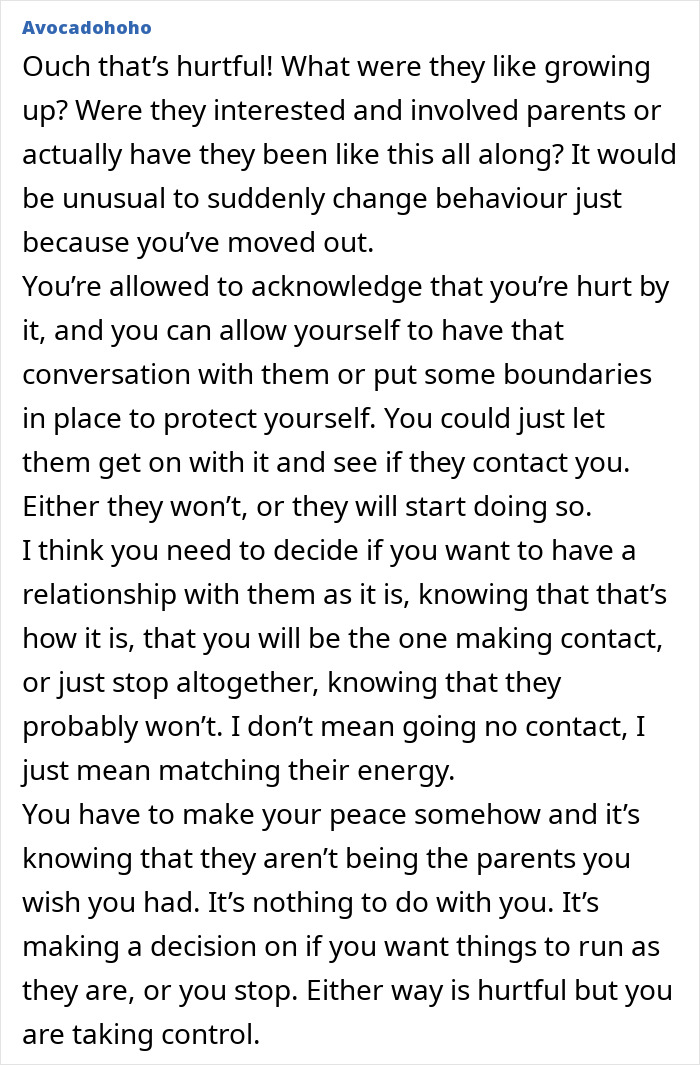

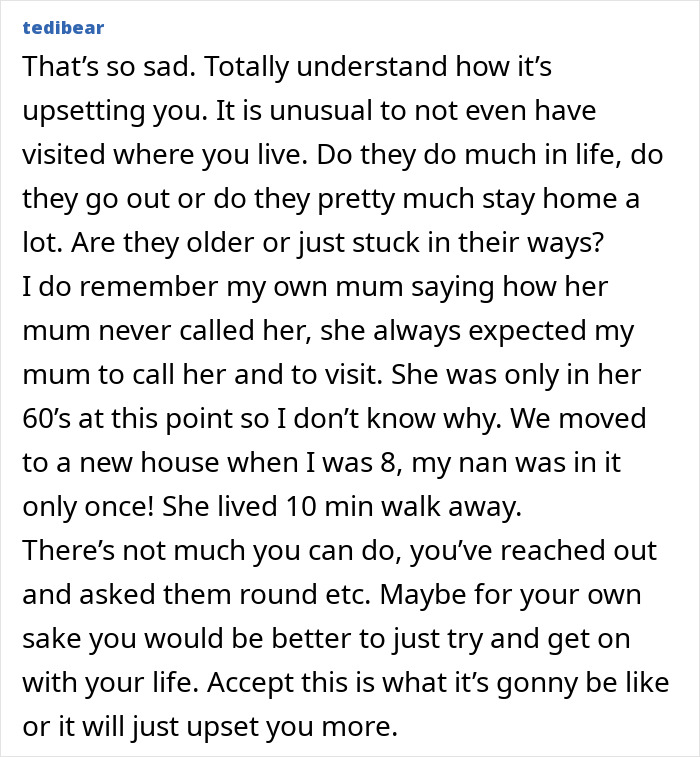
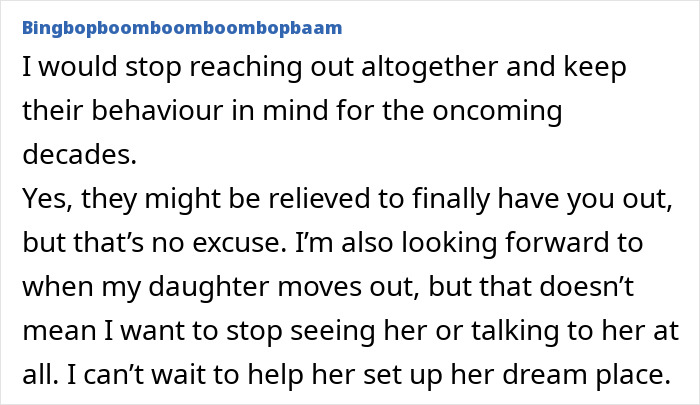


But others thought she was too old to expect her parents to treat her like a child
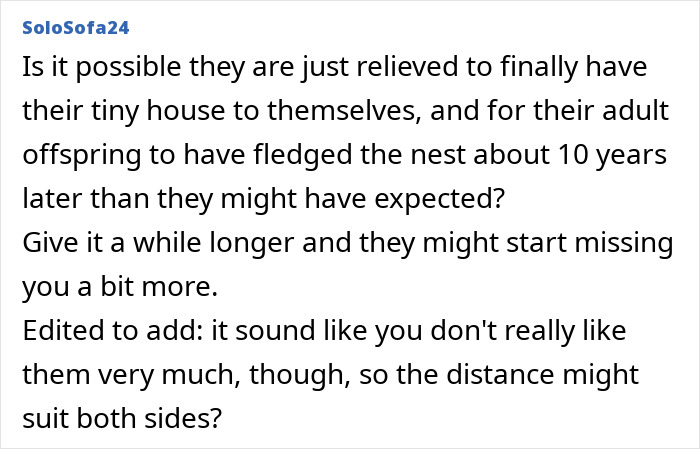

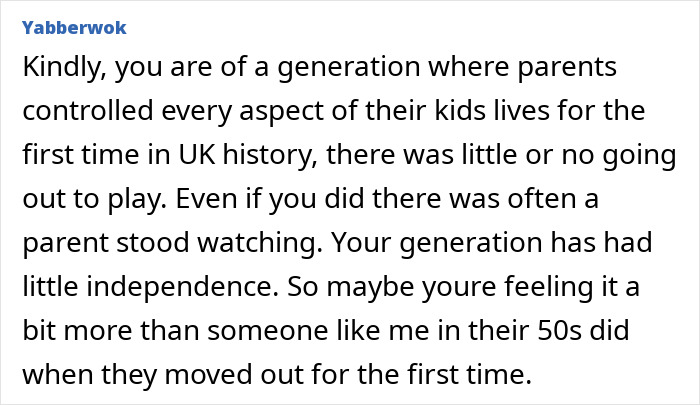
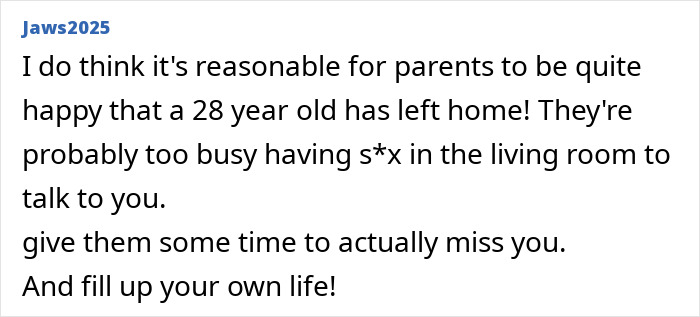
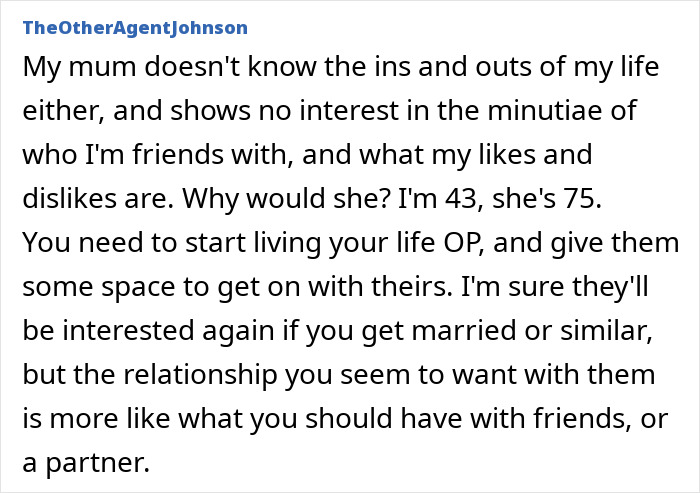


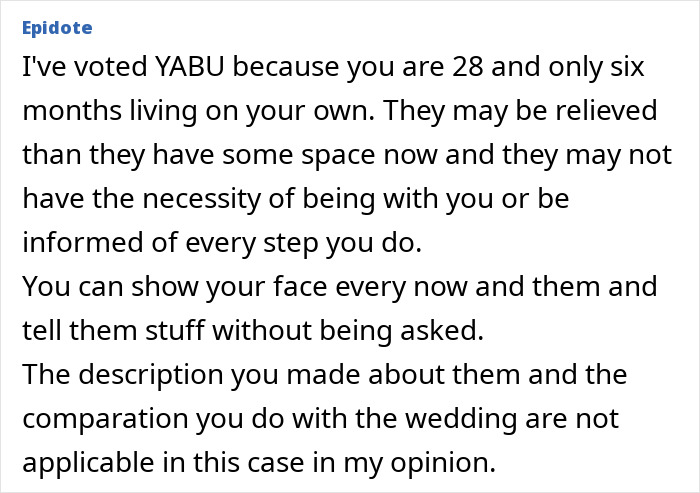
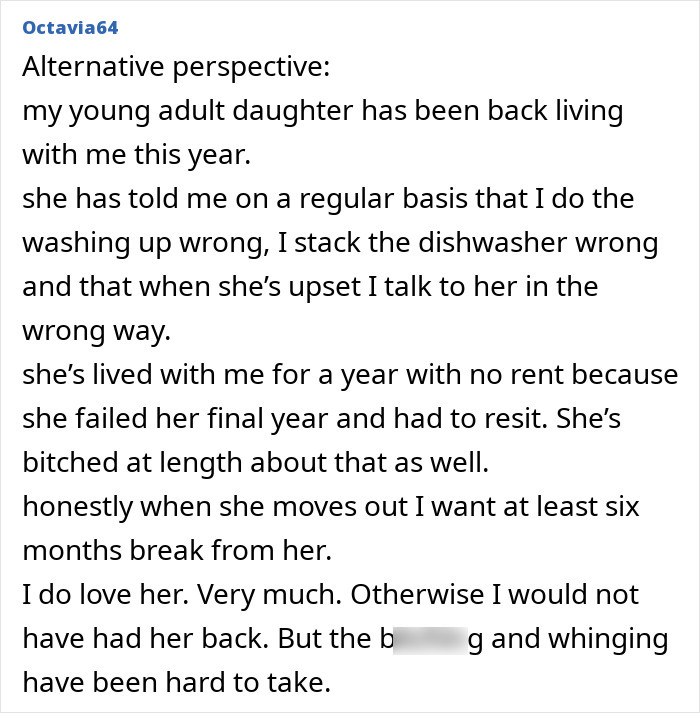

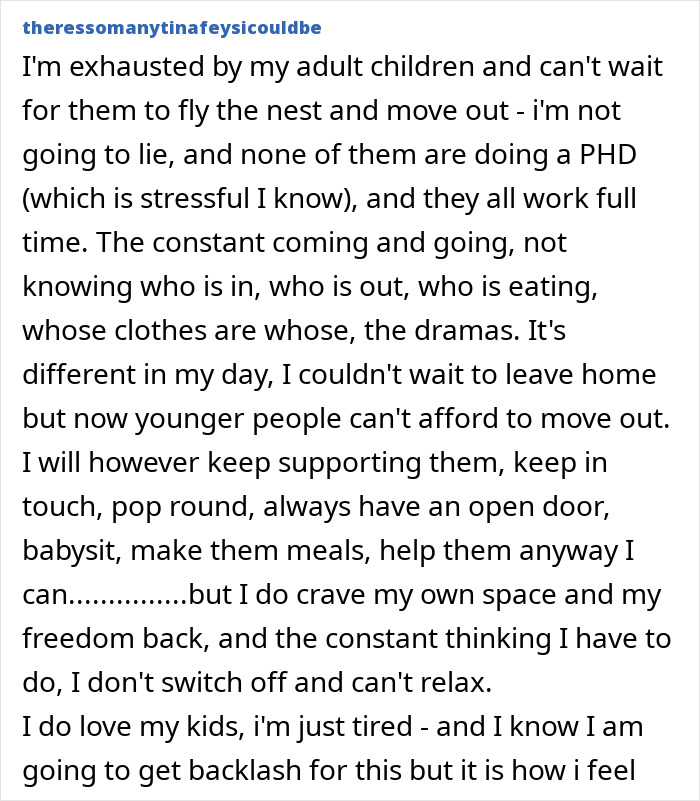
 Follow Us
Follow Us





